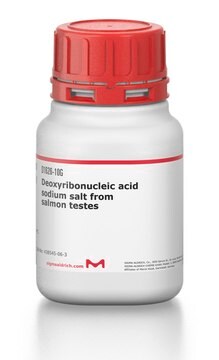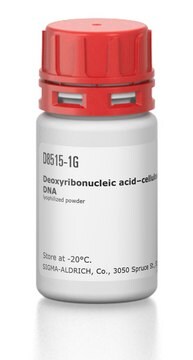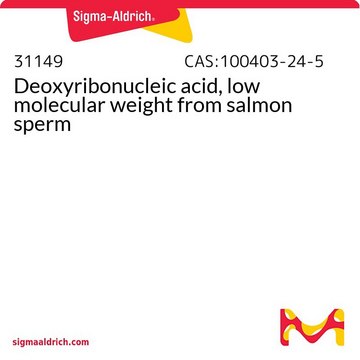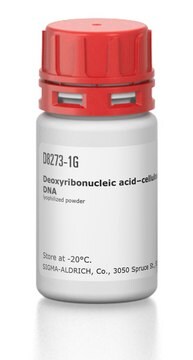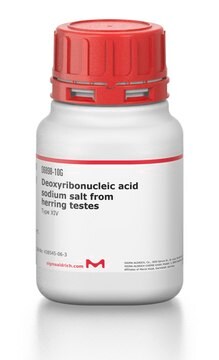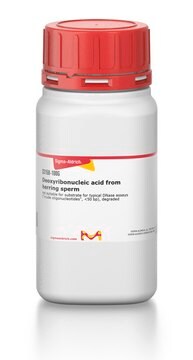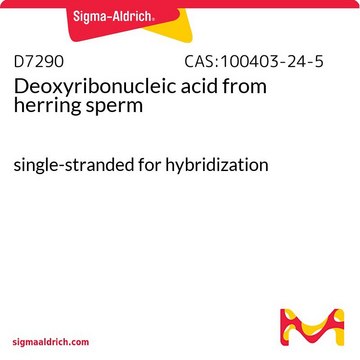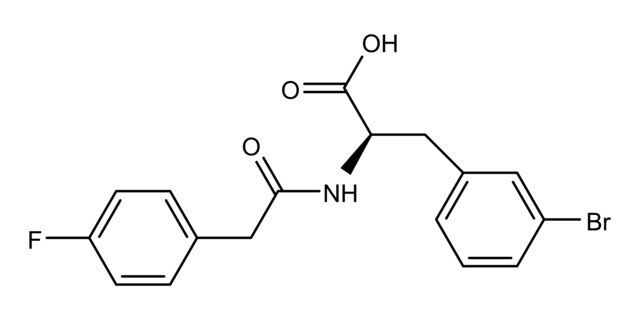D1501
Deoxyribonucleic acid sodium salt from calf thymus
Type I, fibers
Sinónimos:
ctDNA, DNA sodium salt from calf thymus, Thymonucleic acid sodium salt
About This Item
Productos recomendados
¿Está buscando productos similares? Visita Guía de comparación de productos
Application
Quality
Physical properties
DNA from calf thymus is 41.9 mole % G-C and 58.1 mole % A-T.1 An OD of 1.0 at 260 nm corresponds to ~ 50 μg of double-stranded DNA.
Physical form
Preparation Note
Reconstitution
Storage Class
11 - Combustible Solids
wgk_germany
WGK 3
flash_point_f
Not applicable
flash_point_c
Not applicable
ppe
Eyeshields, Gloves, type N95 (US)
Certificados de análisis (COA)
Busque Certificados de análisis (COA) introduciendo el número de lote del producto. Los números de lote se encuentran en la etiqueta del producto después de las palabras «Lot» o «Batch»
¿Ya tiene este producto?
Encuentre la documentación para los productos que ha comprado recientemente en la Biblioteca de documentos.
Los clientes también vieron
Protocolos
Enzymatic Assay of Nuclease S1, Product No. N5661
Nuestro equipo de científicos tiene experiencia en todas las áreas de investigación: Ciencias de la vida, Ciencia de los materiales, Síntesis química, Cromatografía, Analítica y muchas otras.
Póngase en contacto con el Servicio técnico


